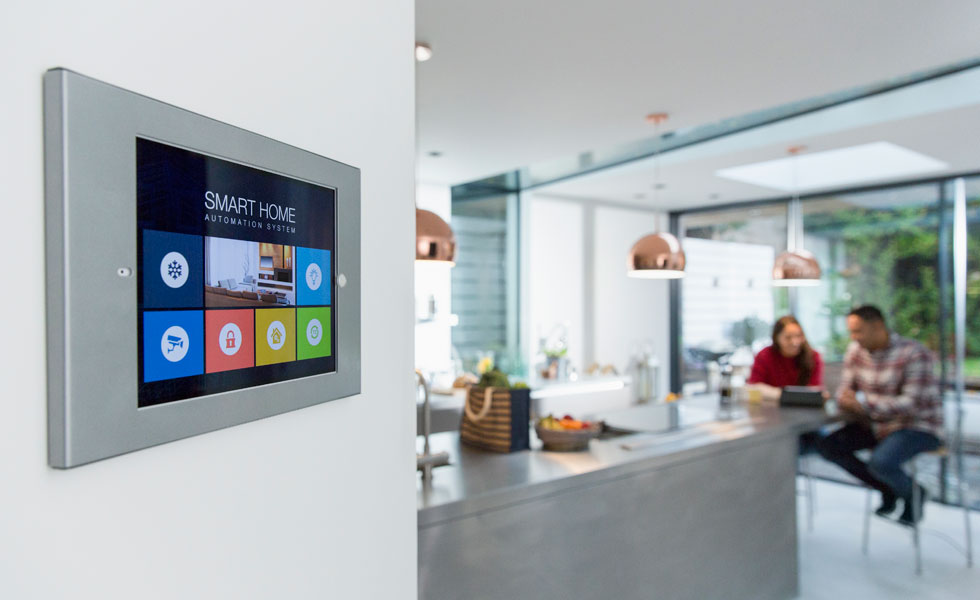Imagine a world where your home is not just a shelter, but a hub of intelligence and convenience. The realm of future smart home innovations is poised to redefine how we interact with our living spaces. These advancements promise to bring unparalleled efficiency, comfort, and security to homeowners and businesses alike. This article delves into the exciting possibilities that await in the realm of smart homes.
As we stand on the cusp of a technological revolution, the concept of future smart home innovations becomes a central theme in discussions about modern living. From automated systems to AI-driven solutions, the transformation of our homes is underway, and it is both thrilling and transformative.

Revolutionizing Household Management with AI
The integration of artificial intelligence in smart homes stands as a cornerstone of future innovations. AI systems are designed to learn from user behavior, adapting to preferences and offering personalized experiences. Imagine a home that anticipates your needs, adjusting lighting, temperature, and even playing your favorite music as you enter a room.
One fascinating aspect of AI in smart homes is energy management. By analyzing usage patterns, AI can optimize energy consumption, significantly reducing utility bills. The result is not just a more comfortable living environment but a more sustainable one.
The Rise of Connected Appliances
Connected appliances represent another leap in future smart home innovations. These devices, which can communicate with each other and with users, offer convenience like never before. Picture a refrigerator that suggests recipes based on its contents or a washing machine that schedules cycles during off-peak energy hours to save costs.
Such appliances not only enhance the user experience but also contribute to a more efficient household. Many companies are already producing smart appliances, paving the way for their widespread adoption in the coming years.
Enhanced Security Through Smart Technology
The security of our homes is paramount, and smart technology is radically transforming how we protect our living spaces. Smart security systems now include features like facial recognition, real-time alerts, and remote monitoring, providing homeowners with peace of mind even when they are miles away.
Innovations such as smart locks and video doorbells add layers of security, allowing for seamless access control. As these technologies continue to evolve, they promise to create a safer and more secure home environment.
Creating Immersive Experiences with Smart Entertainment
The entertainment sector is also witnessing a significant transformation due to future smart home innovations. Smart TVs and sound systems are increasingly becoming integrated into the home ecosystem, offering an immersive experience tailored to personal preferences.
Imagine a voice-controlled system that queues up your favorite movie with the perfect lighting and sound settings. Such innovations make entertainment more engaging, personal, and enjoyable.
Building Smart Cities with Smart Homes
The rise of smart homes is not an isolated phenomenon; it is part of a larger trend towards smart cities. The integration of smart home technology with urban infrastructure can lead to more efficient cities, where energy and resources are optimized for maximum efficiency.
As smart homes become more prevalent, they will play a crucial role in shaping the cities of the future. This interconnectedness promises to create urban environments that are not just smart, but also sustainable and resilient.
For more insights on how smart homes evolve, check out our detailed guide on smart home evolution.

FAQs on Future Smart Home Innovations
What are the key features of future smart homes?
Future smart homes will feature advanced AI systems, connected appliances, enhanced security measures, and integrated entertainment solutions. These elements will work together to create a seamless, efficient, and personalized home environment.
How can smart home technology improve energy efficiency?
Smart home technology can improve energy efficiency through AI-driven energy management systems that optimize consumption based on user habits. Additionally, connected appliances can operate during off-peak hours, reducing overall energy costs.
Are smart homes secure?
Yes, smart homes are designed with enhanced security features such as smart locks, video doorbells, and real-time monitoring systems. These technologies provide robust security while allowing homeowners to monitor their homes remotely.
As the journey towards future smart home innovations continues, the possibilities are endless. The convergence of technology and home life is set to create environments that are not only efficient and secure but also deeply personalized. For those interested in setting up a smart home, the Smart Home Installation Guide offers valuable insights into getting started.

